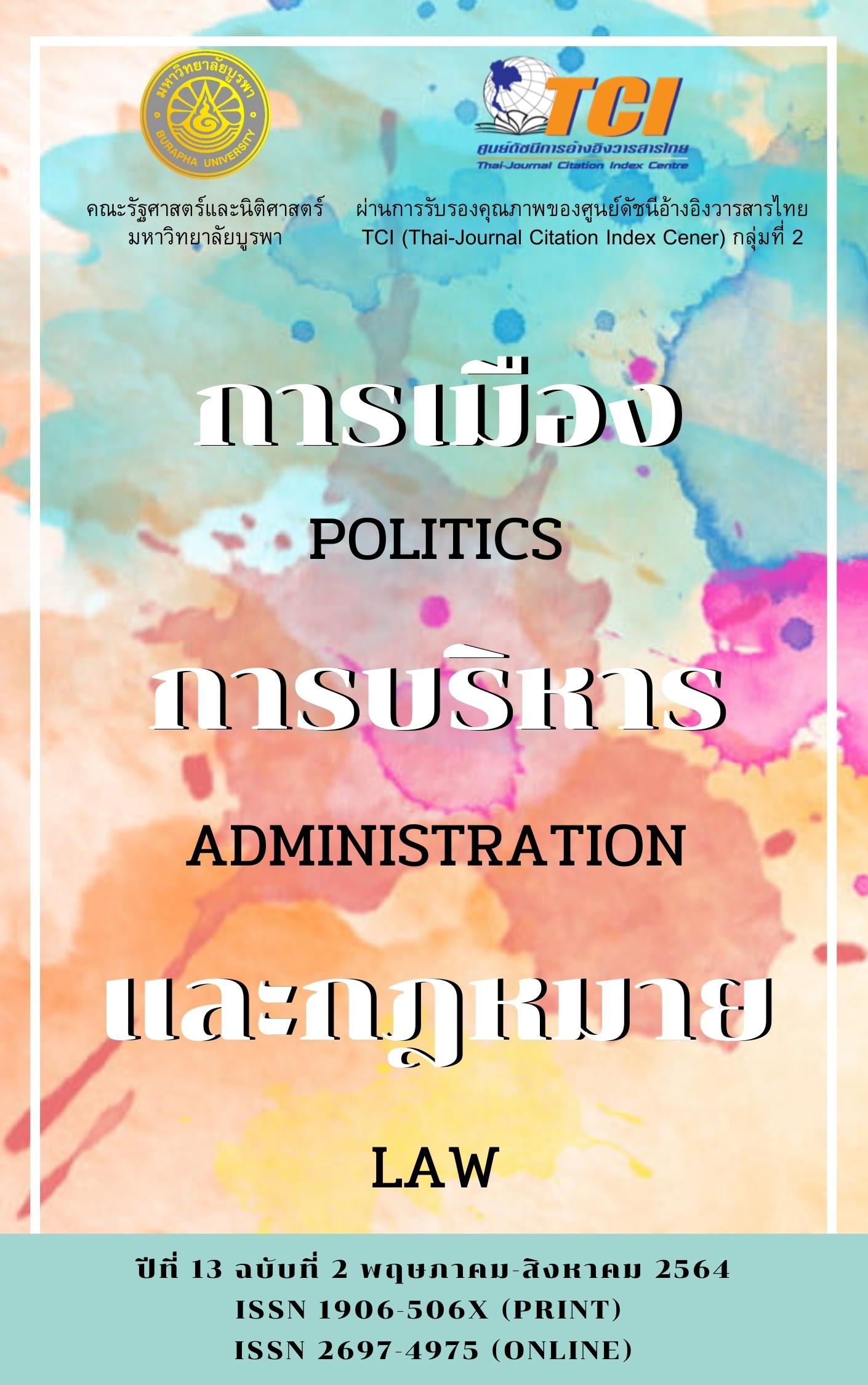Proposed Policy for Vocational Manpower Development to Support Thailand 4.0
Keywords:
Vocational, Thailand 4.0, Manpower DevelopmentAbstract
The purpose of this research was to 1) study the knowledge relating to the development of vocational education to support Thailand 4.0 2) Study guidelines for vocational education development to support Thailand 4.0 3) Synthesize knowledge in making policy proposals for the development of vocational manpower to support Thailand 4.0 And 4) make a report on policy proposals for the development of vocational manpower to support Thailand 4.0 The study method is an integrated research. The study of policy proposals for vocational personnel development to support Thailand 4.0 is the future study using EDFR (Ethnographic Delphi Futures Research). Synthesis of SWOT Analysis Tools and TOWS Matrix Analysis to find the relationship between internal and external factors and create policies for the development of vocational manpower to support Thailand 4.0 From the study, it is found that there are 5 policies on manpower development strategies, 14 strategies, 65 strategies as follows Policy 1: Production and development of vocational personnel toward standard quality to support the changing situation consisting of 3 strategies and 12 strategies. Policy 2: Pushing and giving importance to vocational personnel to be ready for the development of vocational manpower Supporting Thailand 4.0 consisting of 3 strategies, 12 strategies. Policy 3: Develop educational institutions and modern teaching and learning styles Supporting Thailand 4.0 consisting of 3 strategies, 15 strategies. Policy 4: Vocational education management Aim for excellent operations Consistent with Thailand 4.0 consisting of 3 strategies, 16 strategies and Policy 5: Pushing vocational education to have a strong educational cooperation network consistent with Thailand 4.0 consisting of 2 strategies, 10 strategies.
References
กลุ่มยุทธศาสตร์การผลิตและพัฒนาทรัพยากรมนุษย์ สำนักยุทธศาสตร์การผลิตและพัฒนาทรัพยากรมนุษย์ สำนักงานเลขาธิการสภาการศึกษา. (2559). การศึกษาเพื่อทบทวนความต้องการกำลังคนเพื่อใช้ วางแผนการผลิตและพัฒนาทรัพยากรมนุษย์ของประเทศ. กรุงเทพฯ: พริกหวานกราฟฟิค.
กองบริหารงานวิจัยและประกันคุณภาพการศึกษา. (2559). Thailand 4.0 โมเดลขับเคลื่อนประเทศไทยสู่ ความมั่งคั่ง มั่นคง และยั่งยืน. กรุงเทพฯ: ส.ค.ส.
กองบริหารงานวิจัยและประกันคุณภาพการศึกษา. (2559). Thailand 4.0 โมเดลขับเคลื่อนประเทศไทยสู่ ความมั่งคั่ง มั่นคง และยั่งยืน. กรุงเทพฯ: ส.ค.ส.
ธีรวี ทองเจือ และปรีดี ทุมเมฆ. (2560) แนวทางการพัฒนาทรัพยากรมนุษย์ ในศตวรรษที่ 21: มิติด้านการศึกษา. วารสารสันติศึกษาปริทรรศน์ มจร., 5(3), 392 - 401.
นรินทร์ สังข์รักษา และคณะ. (2561). การวิจัยและพัฒนาเพื่อเสริมสร้างสมรรถนะของครูอาชีวศึกษาให้พัฒนาตนเองอย่างต่อเนื่องด้วยการวิจัยในชั้นเรียน. Veridian E-Journal, Silpakorn University, 11(1), 2852-2872.
พิจิตรา ทีสุกะ. (2556). การพัฒนารูปแบบการเรียนการสอน โดยใช้วิจัยเป็นฐานวิชาการพัฒนาหลักสูตรสำหรับนักศึกษาวิชาชีพครู. วิทยานิพนธ์ปรัชญาดุษฎีบัณฑิต, สาขาวิชาหลักสูตรและการสอน, ภาควิชาหลักสูตรและวิธีสอน, บัณฑิตวิทยาลัย, มหาวิทยาลัยศิลปากร.
วิเวก ปางพุฒิพงศ์. (2525). อาชีวศึกษา...ทางที่มองเห็น. วารสารอาชีวศึกษา, 2(33).
แววตา พูลสวัสดิ์ และคณะ. (2561). การบริหารจัดการการอาชีวศึกษาเพื่อเพิ่มขีดความสามารถในการ แข่งขันยุคการศึกษาไทย 4.0 ของวิทยาลัยเทคโนโลยีซีเทคแปซิฟิค. วารสารวิจัยและพัฒนาวไลย อลงกรณ์ในพระบรมราชูปถัมภ์, 13(1), 8 - 16.
สำนักงานคณะกรรมการการอาชีวศึกษา กระทรวงศึกษาธิการ. (2560). แผนพัฒนาการอาชีวศึกษา พ.ศ. 2560 - 2579. กรุงเทพฯ: สำนักงานคณะกรรมการการอาชีวศึกษา.
สำนักงานคณะกรรมการพัฒนาเศรษฐกิจและสังคมแห่งชาติ. (2560). ทิศทางของแผนพัฒนาเศรษฐกิจและสังคมแห่งชาติ ฉบับที่ 12 (พ.ศ. 2560-2564). กรุงเทพฯ: สำนักงานคณะกรรมการพัฒนา เศรษฐกิจและสังคมแห่งชาติ.
อนุชัย รามวรังกูร และนลินรัตน์ รักกุศล. (2557). การพัฒนารูปแบบการเทียบโอนมาตรฐานฝีมือแรงงานเพื่อคุณวุฒิการศึกษาวิชาชีพ. วารสารวิชาการอุตสาหกรรมศึกษา, 9(2), 85-96.
Thienput, D. (2000). Human Resource in the 21st Century (3rd ed.). Bangkok: Chulalongkorn University Press.
Downloads
Published
Issue
Section
License

This work is licensed under a Creative Commons Attribution-NonCommercial-NoDerivatives 4.0 International License.






